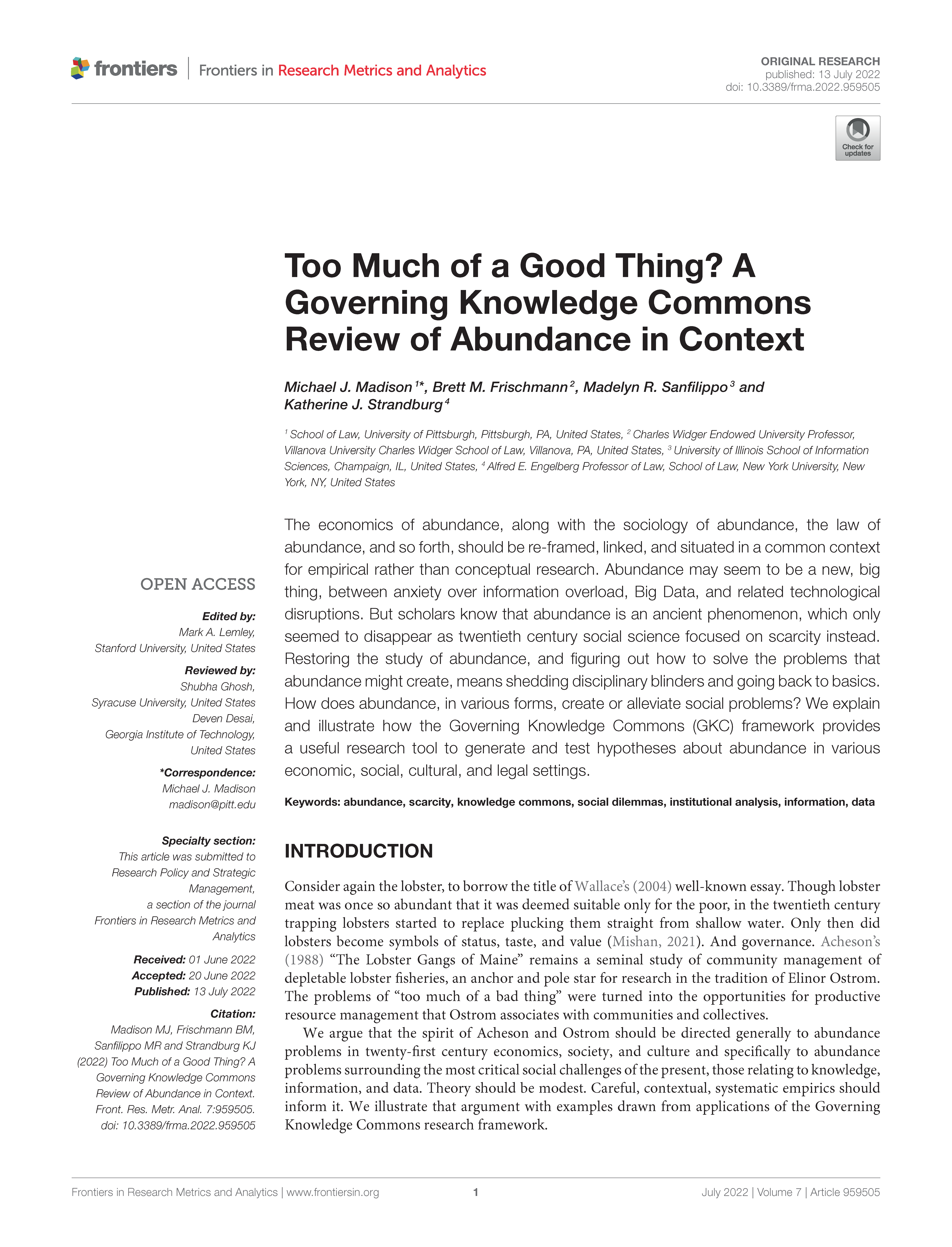Too Much of a Good Thing? A Governing Knowledge Commons Review of Abundance in Context
Michael J. Madison, Brett M. Frischmann, Madelyn R. Sanfilippo, and Katherine J. Strandburg
The economics of abundance, along with the sociology of abundance, the law of abundance, and so forth, should be re-framed, linked, and situated in a common context for empirical rather than conceptual research. Abundance may seem to be a new, big thing, between anxiety over information overload, Big Data, and related technological disruptions. But scholars know that abundance is an ancient phenomenon, which only seemed to disappear as twentieth century social science focused on scarcity instead.

Restoring the study of abundance, and figuring out how to solve the problems that abundance might create, means shedding disciplinary blinders and going back to basics. How does abundance, in various forms, create or alleviate social problems? We explain and illustrate how the Governing Knowledge Commons (GKC) framework provides a useful research tool to generate and test hypotheses about abundance in various economic, social, cultural, and legal settings.
Consider again the lobster, to borrow the title of Wallace's (2004) well-known essay. Though lobster meat was once so abundant that it was deemed suitable only for the poor, in the twentieth century trapping lobsters started to replace plucking them straight from shallow water. Only then did lobsters become symbols of status, taste, and value (Mishan, 2021). And governance. Acheson's (1988) “The Lobster Gangs of Maine” remains a seminal study of community management of depletable lobster fisheries, an anchor and pole star for research in the tradition of Elinor Ostrom. The problems of “too much of a bad thing” were turned into the opportunities for productive resource management that Ostrom associates with communities and collectives.
We argue that the spirit of Acheson and Ostrom should be directed generally to abundance problems in twenty-first century economics, society, and culture and specifically to abundance problems surrounding the most critical social challenges of the present, those relating to knowledge, information, and data. Theory should be modest. Careful, contextual, systematic empirics should inform it. We illustrate that argument with examples drawn from applications of the Governing Knowledge Commons research framework.
Part 2 of the article explains what we mean by abundance and points out the limitations of the standard abundance vs. scarcity framing in twentieth-century writing. Part 3 lays out our different framing, including the importance of context and empirical understanding. Part 3 links that framing to a review of social dilemmas that are particularly apt to appear in resource contexts labeled “abundance.” We show how the empirical research that we envision can be undertaken using the Governing Knowledge Commons (GKC) research framework. Part 4 reviews studies of knowledge commons governance in the context of information abundance as use cases for the GKC framework. Part 5 concludes with implications and recommendations for future research.
